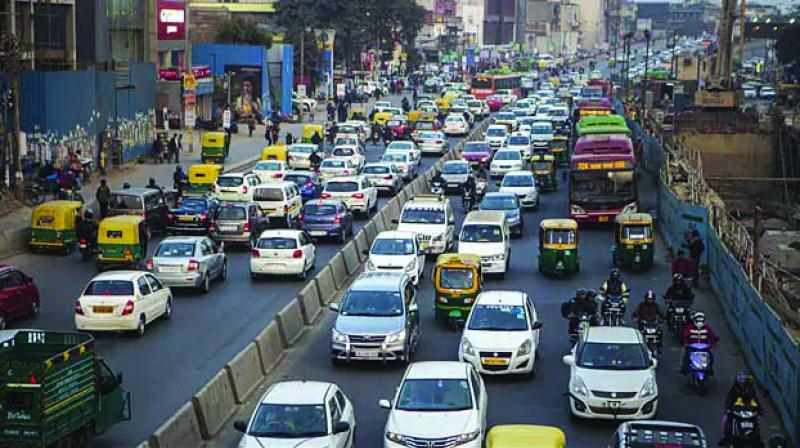Long commutes result in road rage

Bengaluru: It has long been suspected and now it is confirmed that with life becoming increasingly fast-paced in the metropolitan cities, people are suffering from stress during long commutes to work and are becoming prone to road rage.
An ‘Age of Rage’ national survey conducted by Tata Salt Lite in 10 metros of the country in August this year reveals that over half the people living in cities are prone to road rage due to commuting in stressful traffic conditions.
As many as 56 per cent of the 2,500 respondents surveyed admitted they were likely to exhibit road rage if they were held up in traffic and were getting late for work and could over-react in their responses to the traffic police and other drivers. Exhibiting a greater degree of rancour, 16 per cent of those surveyed said they “were more likely” to misbehave with other drivers or traffic police and disobey traffic laws.
While most people think of road rage as violent assault, it also includes tailgating, abrupt lane changes, speeding, and verbal threats, according to the survey, which covered Hyd-erabad, Bengaluru, Chen-nai, Ahmedabad, Delhi, Kolkata, Mumbai, Chandi-garh, Pune and Lucknow.
Going by the National Crime Records Bureau, 4,255 incidents of road rage were reported in Bengaluru in 2015 and 50.1 per cent of those involved were injured in such incidents. While the National Family Health Survey — 4 makes no reference to traffic indu-ced stress, it says 10 per cent of men in Bengaluru between the ages of 15 and 49 suffer from hypertension and 5.6 per cent of women in the same group suffer from the disease.
Emphasising that stress-related disorders due to driving are a serious health concern, the survey lamen-ts there isn’t any focused study in India to monitor commuting stress affecting an individual’s physiology. “It’s a serious concern, and more people are succumbing to stress brought on by staying in their vehicles for too long, leading to all sorts of trouble like depression, hypertension, anxiety, rage, diabetes, fatigue, and even heart disease,” it adds.
Dr Aviva Pinto Rodrigues, fertility consultant, Nova IVF Fertility, who acknowledges that some day-to-day situations in traffic can be a contributing cause for hypertension, warns that the condition in men can lead to poor semen quality and in women, affect the lining of the uterus, which could potentially affect the healthy implantation of the embryo.

